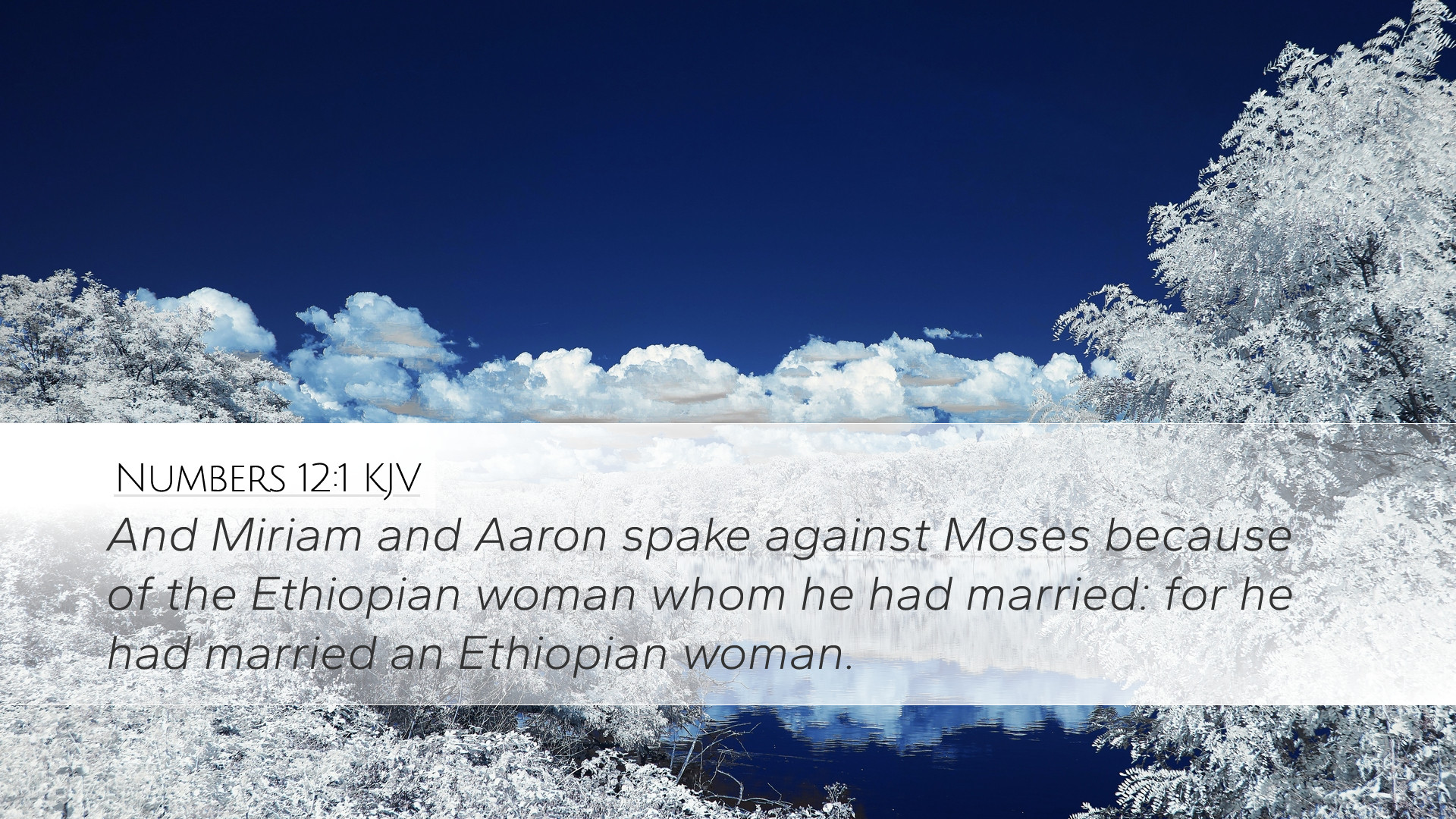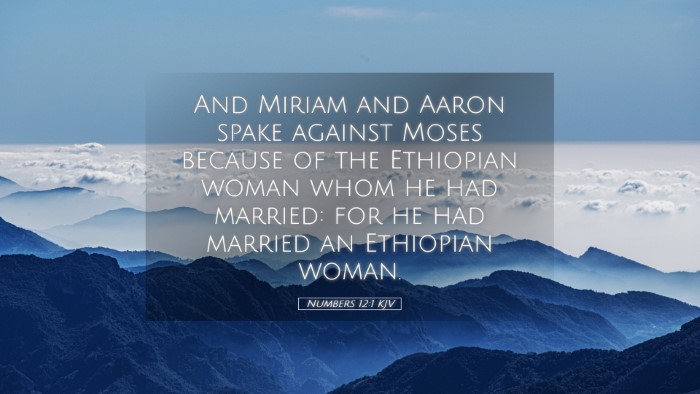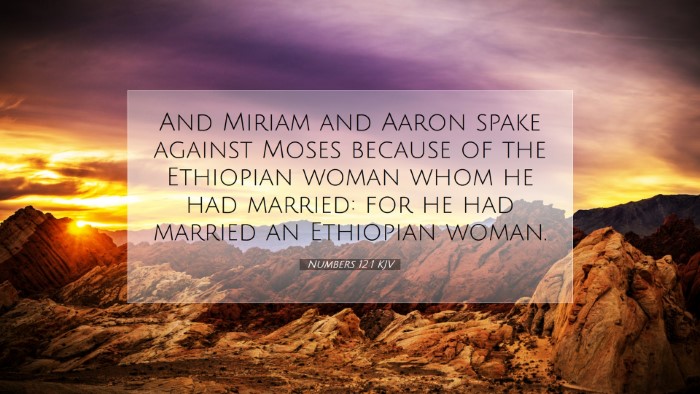Commentary on Numbers 12:1
Bible Verse: "And Miriam and Aaron spake against Moses because of the Ethiopian woman whom he had married: for he had married an Ethiopian woman."
Introduction
The context of Numbers 12:1 unfolds amidst a time when the Israelites were journeying through hostility and hardship towards the Promised Land. In this verse, we observe a significant moment of internal conflict among the leaders of Israel, specifically the siblings of Moses—Miriam and Aaron. Their criticism reveals human tendencies towards jealousy and discontent, which resonate throughout biblical history.
Examination of Aaron and Miriam's Actions
-
Miriam's Role:
Miriam, referred to as a prophetess (Exodus 15:20), plays a pivotal role as the elder sister of Moses. Her influence and leadership within the community could have bred both respect and rivalry. This critique of Moses may have originated from a mix of pride and a desire for equality in leadership roles.
-
Aaron’s Position:
Aaron, appointed as the high priest, had considerable authority and responsibility. His involvement in this dissent illustrates the way positions of power can lead to tensions, particularly when coupled with familial relationships. His partnership with Miriam suggests a shared discontent with Moses's decisions and perceived authority.
The Ethiopian Woman
-
Cultural Context:
The reference to Moses marrying an Ethiopian woman (a Cushite) raises questions about ethnic and cultural pride among the Israelites. The Cushites were often seen as outsiders within Hebrew culture, suggesting that Miriam and Aaron's complaints may have had racial undertones.
-
God's Choice:
It is vital to recognize that God had chosen Moses regardless of his marital decisions. This indicates that divine calling transcends human prejudices and ethnic barriers, underscoring the authorities of God's sovereignty in leadership appointments (Matthew Henry).
Motivations Behind the Criticism
-
Pride and Ambition:
The ambition that led Miriam and Aaron to question Moses's leadership can also reflect the human reality of jealousy, especially when one feels overshadowed. Their challenge suggests an underlying belief that they should share in the prophetic leadership alongside Moses (Albert Barnes).
-
Divine Authority vs. Human Authority:
This incident illustrates a crucial conflict: the tension between divine authority, as exemplified by Moses's direct relationship with God, and human authority, which can often be marred by personal agendas and biases.
Theological Implications
-
Divine Judgment:
The actions of Miriam and Aaron result in God's severe response, showcasing that divine governance operates within a framework of holiness. When leaders operate out of jealousy and pride, God does not hesitate to correct and discipline; this serves as a lesson for contemporary leaders in the church today (Adam Clarke).
-
Humility in Leadership:
The rebuke received by Miriam and Aaron emphasizes the importance of humility and respect for the divinely appointed leadership. It challenges all leaders to constantly evaluate their motives and desires for positions of authority.
Lessons for Today
-
Community Dynamics:
This conflict invites believers to reflect on community dynamics within church structures. The temptation to gossip and sow discord can arise even among those in leadership, leading them away from the mission of the Gospel.
-
Ethnicity and Inclusion:
The narrative beckons the modern church to assess its attitudes towards inclusiveness. Just as God brought Moses and his Cushite wife together, churches should actively celebrate diversity within their congregations.
-
Submission to God’s Order:
Finally, believers are reminded of the necessity for submission to God's order, especially in leadership. The recognition of God’s ultimate control over spiritual authority remains imperative for maintaining unity and purpose within the church.
Conclusion
Numbers 12:1 serves as a crucial teaching moment found within the broader narrative of the Exodus. It encourages self-examination among leaders, fosters community unity, and elevates God’s sovereignty in all matters of leadership and inclusion. Both the historic and contemporary implications enrich our understanding of how God operates within His chosen people and challenge us towards humility and joyous acceptance of His divine purposes.


